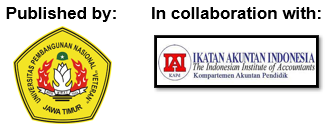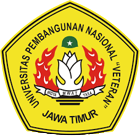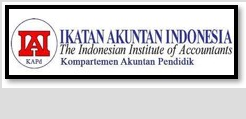The Mechanism of Corporate Governance, Financial Performance, and Social Performance in Baitul Maal Wat Tamwil (BMT)
DOI:
https://doi.org/10.33005/jasf.v3i1.66Keywords:
Financial Performance, Social Performance, Education Level of Supervisors Board, Education Level of Sharia Supervisory Board, Baitul Maal WattamwilAbstract
This study aimed to empirically prove the influence of the number and education level of managers, supervisory boards, Sharia Supervisory Board (SSB) and the attendance of Baitul Maal wat Tamwil (BMT) members (owners) in annual member meeting towards on profitability (ROA and ROE), and social performance (zakat performance). The research sample was BMT in Semarang Regency selected by purposive sampling method with an observation period from 2013 to 2017. Data analysis used the Structure Equation Model with the WarpPLS tool. The results showed that the number and education level of managers did not influence financial performance. The education level of the supervisory board had a significant influence on financial and social performance. The number and the education level of SSB changed financial performance, but the education level of SSB did not affect social performance. The Attendance of BMT members at the annual member meeting did not have a significant influence on BMT's financial and social performance improvement. These results indicated the minimal role of members in evaluating BMT performance, both profitability and social performance.
Downloads
References
Adams, R. B., & Mehran, H. (2012). Bank board structure and performance: Evidence for large bank holding companies. Journal of Financial Intermediation, 21(2), 243–267. https://doi.org/10.1016/j.jfi.2011.09.002
Aguilera, R. V., Williams, C. A., Conley, J. M., & Rupp, D. E. (2006). Corporate governance and social responsibility: A comparative analysis of the UK and the US. Corporate Governance: An International Review, 14(3), 147–158. https://doi.org/10.1111/j.1467-8683.2006.00495.x
Ahmed, I. E. (2017). The Impact of Corporate Governance on Islamic Banking Performance : The Case of UAE Islamic Banks. Journal of Banking and Finance, 2017(09), 1–10. https://doi.org/10.5281/zenodo.889020
Akhter, W., Akhtar, N., & Jaffri, S. K. A. (2009). Islamic Micro-finance and Poverty Alleviation: A case of Pakistan. 2nd CBRC, 1–8. Lahore.
Alaeddin, O., & Anwar, N. (2012). Critical Analysis of Diverse Funding of Islamic Microfinance Institution: A Case Study in BMT Amanah Ummah Surabaya Indonesia. 2nd ISRA Colloquium 2012 - Islamic Finance in a Challenging Economy: Moving Forward, (November), 2–33.
Alamsyah, I. E. (2015, March). Aset BMT Indonesia Capai Rp 4,7 Triliun. Republika News, p. 1.
Almutairi, A. R., & Quttainah, M. A. (2017). Corporate governance: Evidence from Islamic banks. Social Responsibility Journal, 13(3), 601–624. https://doi.org/10.1108/SRJ-05-2016-0061
Ayaba, O. H. (2012). Executive Officer’s (CEO’s) Educational Background and Firm Performance: An empirical study on Manufacturing and IT listed firms in the Stockholm Stock Exchange (Umeå University). Retrieved from http://www.diva-portal.org/smash/record.jsf?pid=diva2:511679
Bukair, A. A., & Abdul-Rahman, A. (2013). The Influence of the Shariah Supervision Board on Corporate Social Responsibility Disclosure by Islamic Banks of Gulf Co-operation Council Countries. Asian Journal of Business and Accounting, 6(2), 65–104. https://doi.org/10.5296/jmr.v7i2.6989
Chen, M. (2006). Managerial Ownership and Firm Performance: An Analysis Using Switching Simultaneous-Equations Models. Applied Economics, 38(November 2014), 161–181. https://doi.org/10.1080/00036840500368136
Cvilikas, S. B.-R., Šarapovas, T., & Aurelijus. (2011). Executive successor attributes in the context of executive succession. Problems and Perspectives in Management, 9(2), 43–50.
Darmadi, S. (2013). Board members’ education and firm performance: evidence from a developing economy. International Journal of Commerce and Management, 23(2), 113–135. https://doi.org/10.1108/10569211311324911
Dusuki, A. (2006). Empowering Islamic Microfinance: Lesson from Group-Based Lending Scheme and Ibn Khaldun’s Concept of ’Asabiyah. Monash University 4th International Islamic …, 1–18.
El-Halaby, S., & Hussainey, K. (2016). Determinants of Compliance With AAOIFI Standards by Islamic Banks. International Journal of Islamic and Middle Eastern Finance and Management, 9(1), 143–168. https://doi.org/10.1108/IMEFM-06-2015-0074
Farook, S., Kabir Hassan, M., & Lanis, R. (2011). Determinants of Corporate Social Responsibility Disclosure: The Case of Islamic Banks. Journal of Islamic Accounting and Business Research, 2(2), 114–141. https://doi.org/10.1108/17590811111170539
Fitriyah & Oktaviana, U. K. (2007). The relevance of Financial Performance and Good Corporate Governance Determinant of Sustainability Corporate Social Responsibility Disclosure in Islamic Bank in Indonesia. International Journal of Nusantara Islam, 1(2), 22–37.
Florackis, C., Kostakis, A., & Ozkan, A. (2009). Managerial Ownership and Performance. Journal of Business Research, 62(12), 1350–1357. https://doi.org/10.1016/j.jbusres.2008.12.001
Garas, S., & ElMassah, S. (2018). Corporate Governance and Corporate Social Responsibility Disclosures. Critical Perspectives on International Business, 14(1), 2–26. https://doi.org/10.1108/cpoib-10-2016-0042
Ghaffar, A. (2014). Relationship of Islamic Bank ’ s Profitability with Corporate Governance Practices. European Journal of Business and Management, 6(17), 141–150.
Ghasemi, M., & Razak, N. H. A. (2016). Does the size of the board of directors and executives affect firm performance in Malaysian listed firms ? International Journal of Economics and Financial Issues, 6, 1–5.
Gill, A. (2008). Corporate Governance as Social Responsibility: A Research Agenda. Berkeley J. Int’l L., 26(2), 452–478. https://doi.org/10.15779/Z38MS9P
Guest, P. M. (2009). The impact of board size on firm performance: Evidence from the UK. European Journal of Finance, 15(4), 385–404. https://doi.org/10.1080/13518470802466121
Haleblian, J., & Finkelstein, S. (1993). Top Management Team Size, CEO Dominance, and Firm Performance: The Moderating Roles of Environmental Turbulence and Discretion. Academy of Management Journal, 36(4), 844–863. https://doi.org/10.5465/256761
Hapsoro, D., & Fadhilla, A. F. (2017). Dody Hapsoro. The South-East Asian Journal of Management, 11(2), 164–183.
Hardoko, E. (2015, February 15). Akibat Kredit Macet, Lembaga Keuangan Syariah di Kabupaten Semarang Bangkrut. Kompas.Com, p. 1. Retrieved from https://regional.kompas.com/read/2015/02/15/01564431/Akibat.Kredit.Macet.Lembaga.Keuangan.Syariah.di.Kabupaten.Semarang.Bangkrut
Hung, H. (2011). Directors’ Roles in Corporate Social Responsibility: A Stakeholder Perspective. Journal of Business Ethics, 103(3), 385–402. https://doi.org/10.1007/s10551-011-0870-5
IAI, I. of I. C. A. (2017). Standar Akuntansi Keuangan Syariah (1 January). Jakarta: Grha IAI.
Indrawaty & Wardayati, S. M. (2016). Implementing Islamic Corporate Governance (ICG) and Islamic Social Reporting (ISR) in Islamic Financial Institution (IFI). Procedia - Social and Behavioral Sciences, 219, 338–343. https://doi.org/10.1016/j.sbspro.2016.04.042
Iqbal, S., Nawaz, A., & Ehsan, S. (2019). Financial performance and corporate governance in microfinance: Evidence from Asia. Journal of Asian Economics, 60, 1–13. https://doi.org/10.1016/j.asieco.2018.10.002
Isik, O., & Ince, A. R. (2016). Board Size, Board Composition, and Performance: An Investigation on Turkish Banks. International Business Research, 9(2), 74–84. https://doi.org/10.5539/ibr.v9n2p74
Kalsie, A., & Shrivastav, S. M. (2016). Analysis of board size and firm performance: Evidence from NSE companies using a panel data approach. Indian Journal of Corporate Governance, 9(2), 148–172. https://doi.org/10.1177/0974686216666456
Khafid, M., Fachrurrozie, Anisykurlillah, I., & Mukhibad, H. (2018). Corporate Governance, Nonperforming Loan, and Profitability – Case Study At Cooperative Institution In Indonesia. In N. A. A. Bakar (Ed.), 8th International Borneo Business Conference 2018 - Diginomics : Promise and Peril (pp. 247–258). Sarawak: Universitas Malaysia Sarawak.
Kompasiana (2019). Kesehatan dan Kinerja Keuangan Mikro Syariah, https://www.kompasiana.com/sutikoeey/5de666e9d541df177638ba64/kesehatan-dan-kinerja-keuangan-mikro-syariah
Kustin, B. (2015). Islamic (Micro) Finance: Culture, Context, Promise, Challenges. Bill & Mellinda Gates Foundation, (August), 50. Retrieved from https://docs.gatesfoundation.org/Documents/Islamic (Micro) Finance Culture, Context, Promise, Challenges.pdf%0Awww.gatesfoundation.org
Lasmiatun, K. M. T. (2014). Prospects of Islamic Microfinance Institutions in Scale Micro Business Funding Support for Poverty Reduction in Indonesia. Proceedings of the First Asia-Pacific Conference on Global Business, Economics, Finance and Social Sciences (AP14Singapore Conference), (August), 1–3.
Laucereno, S. F. (2018, December). Ini 12 Koperasi Abal-abal yang Bikin Buntung. Detikfinance, p. 1.
Mallin, C., Farag, H., & Ow-Yong, K. (2014). Corporate Social Responsibility and Financial Performance in Islamic Banks. Journal of Economic Behavior and Organization, 103. https://doi.org/10.1016/j.jebo.2014.03.001
Martín, C. J. G., & Herrero, B. (2018). Boards of directors: composition and effects on the performance of the firm. Economic Research-Ekonomska Istrazivanja, 31(1), 1015–1041. https://doi.org/10.1080/1331677X.2018.1436454
Mayur, M., & Saravanan, P. (2017). Performance Implications Of Board Size, Composition, And Activity : Empirical Evidence From The Indian Banking Sector. Corporate Governance: The International Journal of Business in Society, 17(3), 466–489. https://doi.org/10.1108/CG-03-2016-0058
Mollah, S., & Zaman, M. (2015). Shariah supervision, corporate governance, and performance : Conventional vs. Islamic banks. JOURNAL OF BANKING FINANCE, 58, 418–435. https://doi.org/10.1016/j.jbankfin.2015.04.030
Mukhibad, H. (2018). Peran Dewan Pengawas Syariah Dalam Pengungkapan Islamic Sosial Reporting. Jurnal Akuntansi Multiparadigma, 9(2), 299–311. https://doi.org/10.18202/jamal.2018.04.9018
Mukhibad, H., Anisykurlillah, I., Nurkhin, A., & Jayanto, P. Y. (2019). Can Social Performance Improve Financial Performance and Increase Customers’ Trust? International Journal of Financial Research, 10(4), 37. https://doi.org/10.5430/ijfr.v10n4p37
Mukhibad, H., & Khafid, M. (2018a). Article history : Jurnal Keuangan Dan Perbankan, 22(3), 506–517.
Mukhibad, H., & Khafid, M. (2018b). Financial Performance Determinant of Islamic Banking in Indonesia. Jurnal Keuangan Dan Perbankan, 22(3), 506–517.
Mukhibad, H., Kiswanto, & Jayanto, P. Y. (2017). An analysis of the financial and social performance of Islamic banks in Indonesia. International Journal of Monetary Economics and Finance, 10(3–4), 295–308. https://doi.org/10.1504/IJMEF.2017.087479
Munir, S. (2015, February). Akibat Kredit Macet, Lembaga Keuangan Syariah di Kabupaten Semarang Bangkrut", https://regional.kompas.com/read/2015/02/15/01. Kompas.Com, p. 1.
Munir, S. (2017, April 12). Pemkab Semarang Bubarkan 200 Koperasi “Abal-abal.” Kompas.Com, p. 1. Retrieved from https://money.kompas.com/read/2017/04/12/172854126/pemkab.semarang.bubarkan.200.koperasi.abal-abal.
Musibah, A. S., & Sulaiman, W. (2014). The Mediating Effect of Financial Performance on the Relationship between Shariah Supervisory Board Effectiveness, Intellectual Capital, and Corporate Social Responsibility, of Islamic Banks in Gulf Cooperation Council Countries. Asian Social Science, 10(17), 139–164. https://doi.org/10.5539/ass.v10n17p139
Mustafidah, U., & Mukhibad, H. (2018). Jenis Pembiayaan, Corporate Governance , Human Capital Investment dan Implikasinya Terhadap Non Performing Financing. Simposium Nasional Akuntansi, (21), 1–16.
Nawaz, T. (2017). Momentum investment strategies, corporate governance, and firm performance: an analysis of Islamic banks. Corporate Governance (Bingley), 17(2), 192–211. https://doi.org/10.1108/CG-03-2016-0052
Nawaz, T. (2019). Exploring the Nexus Between Human Capital, Corporate Governance, and Performance: Evidence from Islamic Banks. Journal of Business Ethics, 157(2), 567–587. https://doi.org/10.1007/s10551-017-3694-0
Nomran, N. M., Haron, R., & Hassan, R. (2017). Bank Performance and Shari’ah Supervisory Board Attributes of Islamic Banks : Does Bank Size Matter ? Journal of Islamic Finance, 6(Special Issue), 174–187. https://doi.org/10.12816/0047348
Nurkhin, A., Rohman, A., Rofiq, A., & Mukhibad, H. (2018). The role of the Sharia Supervisory Board and corporate governance mechanisms in enhancing Islamic performance-evidence from Indonesia. Banks and Bank Systems, 13(4), 85–95. https://doi.org/10.21511/bbs.13(4).2018.08
Palia, D., & Lichtenberg, F. (1999). Managerial Ownership and Firm Performance : A Re-examination Using Productivity Measurement. Journal of Corporate Finance, 5, 323–339.
Pribadi, B. (2015, March). Lebih dari 100 Koperasi di Kabupaten Semarang Tinggal Nama. Kompas, p. 1.
Purbawangsa, I. B. A., Solimun, S., Fernandes, A. A. R. & Rahayu, S. M. (2019). Corporate governance, corporate profitability toward corporate social responsibility disclosure, and corporate value (comparative study in Indonesia, China, and India stock exchange in 2013-2016 ). Social Responsibility Journal (May). https://doi.org/10.1108/SRJ-08-2017-0160
Qoyum, A., Mutmainah, L., Setyono, J., & Qizam, I. (2017). The Impact of Good Corporate Governance, Company Size on Corporate Social Responsibility Disclosure : Case Study of Islamic Banking in Indonesia. Iqtishadia, 10(1), 130–159. https://doi.org/http://dx.doi.org/10.21043/iqtishadia.v10i1.2365
Quttainah, M. A., & Almutairi, A. R. (2017). Corporate ethics: evidence from Islamic banks. Journal of Management and Governance, 21(4), 815–840. https://doi.org/10.1007/s10997-016-9360-6
Riwajanti, N. I. (2013). Islamic Microfinance as an Alternative for Poverty Alleviation : A Survey. Afro Eurasian Studies, 2(1&2), 254–271.
Rokhman, W. (2014). Baitul Mal Wat Tamwil (BMT) and Poverty Empowerment. QIJIS (Qudus International Journal of Islamic Studies), 1(2), 181–196.
Ruangviset, J., Jiraporn, P., & Kim, J. C. (2014). How does Corporate Governance Influence Corporate Social Responsibility? Procedia - Social and Behavioral Sciences, 143, 1055–1057. https://doi.org/10.1016/j.sbspro.2014.07.554
Sadou, A., Alom, F., & Laluddin, H. (2017). Corporate social responsibility disclosures in Malaysia: Evidence from large companies. Social Responsibility Journal, 13(1), 177–202. https://doi.org/10.1108/SRJ-06-2016-0104
Saidu, S. (2019). CEO characteristics and firm performance: focus on the origin, education, and ownership. Journal of Global Entrepreneurship Research, 9(1). https://doi.org/10.1186/s40497-019-0153-7
Seibel, H. D. (2007). Islamic Microfinance in Indonesia : The Challenge of Institutional Diversity, Regulation, and Supervision. Financing the Poor : Towards an Islamic Micro-Finance A Symposium, (April), 1–19. London: Harvard Law School.
Shittu, I., Ahmad, A. C., & Ishak, Z. (2016). Board Characteristics and Earnings Per Share of Malaysian Islamic Banks. International Journal of Economics and Financial Issues, 6(S6), 135–137.
Siregar, S. V., & Bachtiar, Y. (2010). Corporate social reporting: empirical evidence from the Indonesia Stock Exchange. International Journal of Islamic and Middle Eastern Finance and Management, 3(3), 241–252. https://doi.org/10.1108/17538391011072435
Solimun, & Fernandes, A. A. R. (2017). Metode Statistika Multivariat Pemodelan Persamaan Struktural (SEM) Pendekatan WarpPLS (2nd ed.). Malang: UB Press.
Srairi, S. (2015). Corporate Governance Disclosure Practices and Performance of Islamic Banks in GCC Countries. Journal of Islamic Finance, 4(2), 1–17. https://doi.org/10.12816/0024085
Ssekiziyivu, B., Mwesigwa, R., Bananuka, J., & Namusobya, Z. (2018). Corporate governance practices in microfinance institutions: Evidence from Uganda. Cogent Business and Management, 5(1), 1–19. https://doi.org/10.1080/23311975.2018.1488508
Syaifudin, M. (2011). Analisis Kinerja Keuangan pada Koperasi BMT Fajar Mulia Kecamatan Ungaran Kabupaten Semarang (Universitas Negeri Semarang). Retrieved from https://lib.unnes.ac.id/13340/
Tarmizi, M. (2017). The Role of Islamic Micro Finance Institutions (MFI) in Increasing Farmer’s Revenue. Journal of Islamic Economics Lariba, 3(2), 85–94.
Tempo. (2018, November). Aset BMT Tumbuh Signifikan. Tempo.Co, p. 1.
Wulandari, P., & Kassim, S. (2016). Issues and challenges in financing the poor: a case of Baitul Maal Wa Tamwil in Indonesia. International Journal of Bank Marketing, 34(2), 216–234. https://doi.org/10.1108/IJBM-01-2015-0007
Young, S., & Thyil, V. (2013). Corporate Social Responsibility and Corporate Governance : Role of Context in International Settings. Journal of Business Ethics. https://doi.org/10.1007/s10551-013-1745-8
Downloads
Published
How to Cite
Issue
Section
License
Copyright (c) 2020 Hasan Mukhibad, Ahmad Nurkhin

This work is licensed under a Creative Commons Attribution 4.0 International License.














